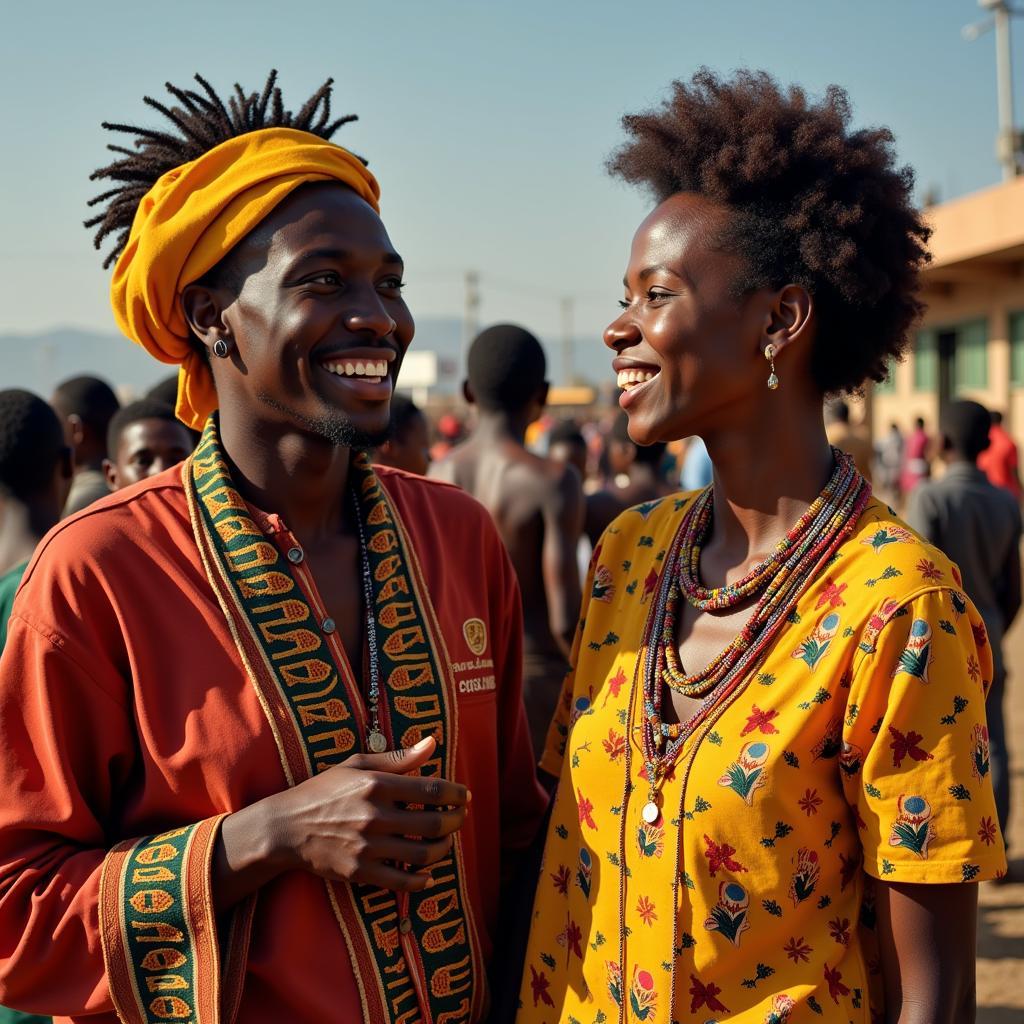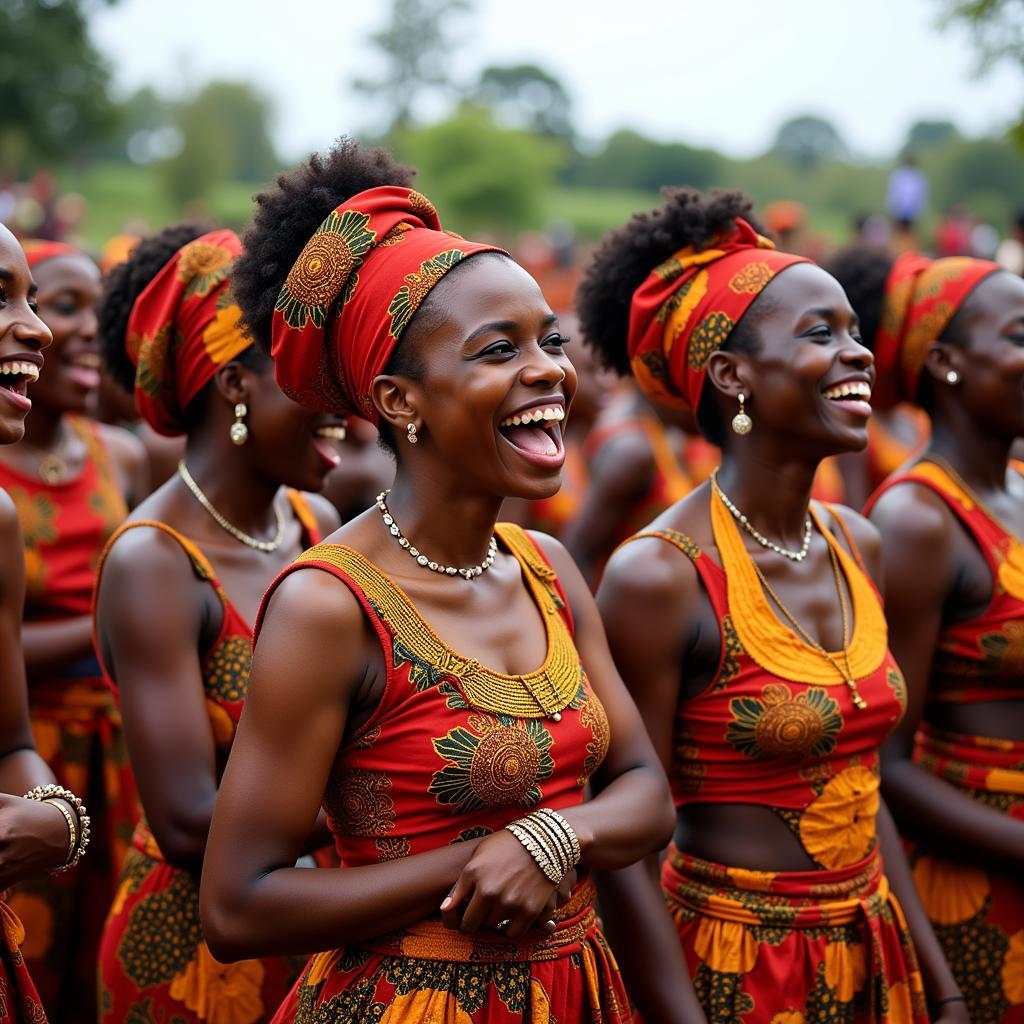Unveiling the African Charter PDF: A Guide to Understanding Its Significance
The “African Charter Pdf” is a search term that often leads individuals down a path of seeking valuable information about human rights in Africa. Specifically, it points to a desire to access the African Charter on Human and Peoples’ Rights – a foundational document outlining the inherent rights and freedoms of every individual on the continent. This document, established in 1981, reflects Africa’s commitment to upholding human dignity and fostering a culture of respect within its diverse nations.
Delving into the Essence of the African Charter
At its core, the African Charter, much like the Universal Declaration of Human Rights, asserts the universality, inalienability, and indivisibility of human rights. It acknowledges that every human being is inherently deserving of respect and protection, irrespective of their nationality, ethnicity, gender, religion, or any other status. However, what distinguishes the African Charter is its unique blend of individual and collective rights.
The Dual Focus: Individual and Peoples’ Rights
The Charter’s pioneering aspect lies in its recognition of not only individual rights but also the rights of peoples. This dual emphasis reflects Africa’s deep-rooted sense of community and the understanding that individual well-being is inextricably linked to the well-being of the collective.
 A vibrant African community gathering to celebrate their cultural heritage.
A vibrant African community gathering to celebrate their cultural heritage.
Championing Individual Liberties
The Charter meticulously outlines a comprehensive set of individual rights, mirroring those enshrined in international human rights instruments. These include:
- Right to Life: Every individual has the inherent right to life, and this right shall be protected by law.
- Prohibition of Torture: No one shall be subjected to torture, cruel, inhuman or degrading treatment or punishment.
- Right to Liberty and Security of Person: Everyone has the right to liberty and security of person.
- Right to a Fair Trial: Every individual shall have the right to be presumed innocent until proven guilty in a fair and public hearing.
- Freedom of Expression: Every individual shall have the right to receive information and to express and disseminate their opinions within the law.
Upholding the Rights of Peoples
Recognizing the historical context of colonialism and its enduring legacy, the Charter acknowledges specific rights belonging to peoples, including:
- Right to Self-Determination: All peoples have the right to freely determine their political status and pursue their economic, social and cultural development.
- Right to Development: All peoples shall have the right to their economic, social and cultural development.
- Right to Peace and Security: All peoples have the right to national and international peace and security.
Accessing the African Charter PDF
For a deeper understanding, the full text of the African Charter on Human and Peoples’ Rights is readily accessible online. Various reputable sources, including the African Union website and legal databases, offer PDF versions for download.
The Enduring Relevance of the African Charter
The African Charter is not merely a document; it’s a living testament to Africa’s commitment to human dignity and progress. It serves as a cornerstone for legal frameworks, inspires advocacy efforts, and empowers individuals to claim their rights.
Conclusion
The African Charter PDF is more than just a digital file; it represents a powerful tool for understanding and promoting human rights across the African continent. By embracing its principles and working towards their realization, we contribute to building a future where every individual can live with dignity and freedom.
FAQs
1. What is the significance of the African Charter’s emphasis on peoples’ rights?
The inclusion of peoples’ rights recognizes the collective dimension of human rights, particularly relevant in the African context where community plays a vital role.
2. How does the African Charter contribute to the protection of human rights in Africa?
The Charter provides a legal and moral framework for states to uphold human rights standards, empowers individuals to claim their rights, and guides the work of human rights defenders.
3. What are some of the challenges in implementing the African Charter?
Challenges include limited resources, political instability, weak governance structures, and cultural practices that may conflict with certain rights.
4. How does the African Charter relate to other international human rights instruments?
The African Charter complements and reinforces international human rights law, while also addressing the specific needs and aspirations of the African continent.
5. How can I get involved in promoting the principles of the African Charter?
You can support human rights organizations working in Africa, raise awareness about the Charter, advocate for its implementation, and hold your government accountable for upholding its provisions.
Need More Information?
Have further questions about the African Charter and its impact on Africa? We’re here to help.
Contact Us:
Phone: +255768904061
Email: [email protected]
Address: Mbarali DC Mawindi, Kangaga, Tanzania
Our dedicated team is available 24/7 to provide assistance and answer any questions you may have.


